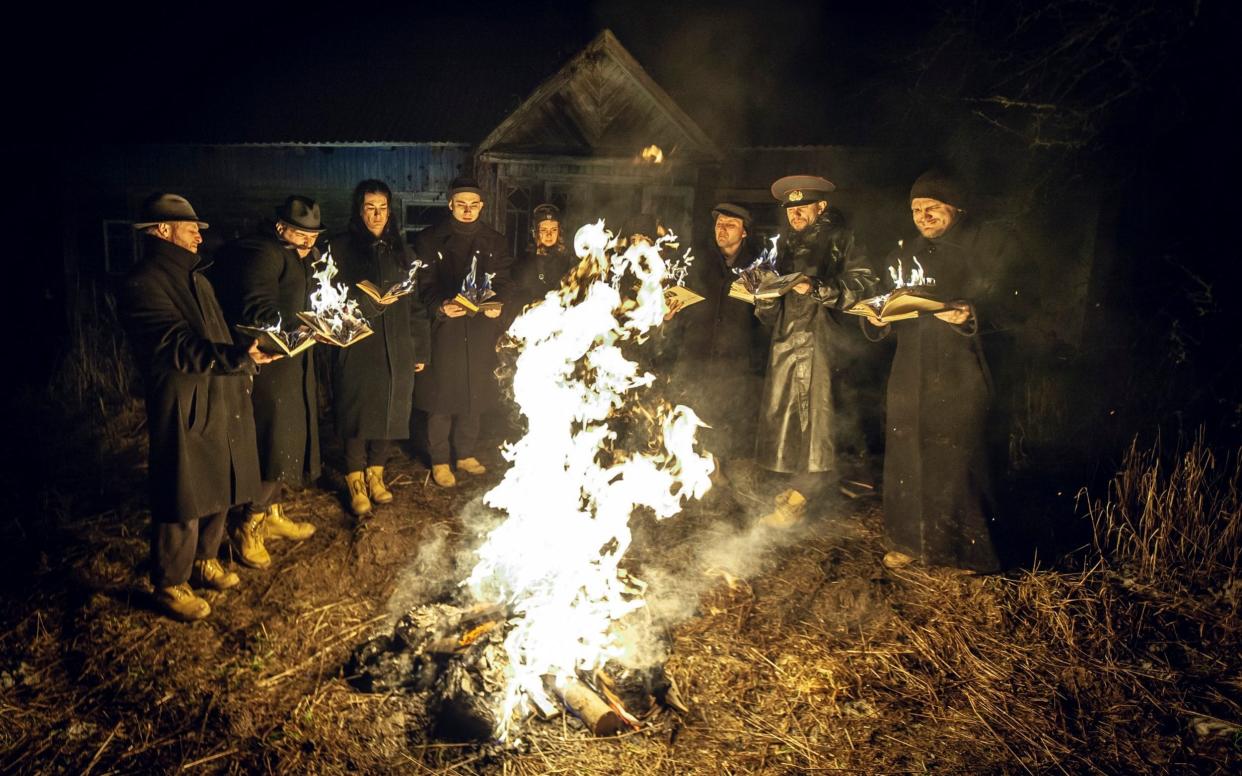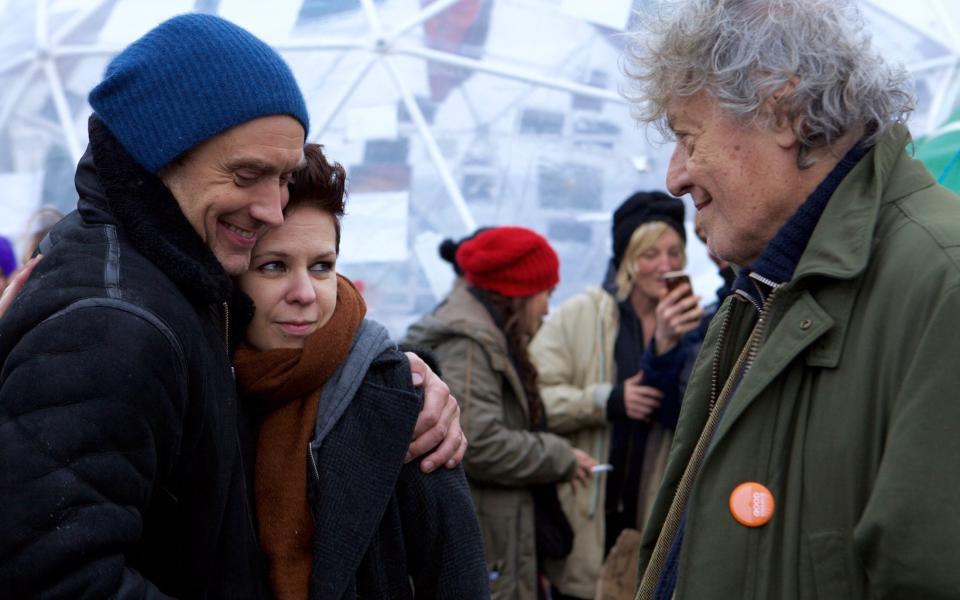At odds with a dictator: Belarus Free Theatre on being the bravest theatre company in the world

In 2005, the eastern European country of Belarus was memorably defined by Condoleezza Rice, then US secretary of state, as “the last remaining true dictatorship in the heart of Europe”.
It was a top-level affirmation of the fact that Alexander Lukashenko – the former collective farm director who became president in 1994 – had extended an iron grip over the population, crushing the freedom that briefly arose after Communism’s collapse, presiding over fatal “disappearances” and the only use of the death penalty in Europe.
The year 2005 also marked the formation of an underground theatre company, the Belarus Free Theatre, which up until today, and the most febrile election of Lukashenko’s 26-year rule, has defied the heavily moustached autocrat and ensured that his regime has remained on the international agenda.
So far as Belarus officialdom is concerned, the company doesn’t exist. Yet it’s a thorn in Lukashenko’s side. When the company was invited to stage King Lear at Shakespeare’s Globe in 2012 at the time of the Olympics, representatives from the Belarus embassy were dispatched (unsuccessfully) to demand the troupe be disinvited.
The company ethos was subversive from the start – with appeals for interested actors to get in touch furtively posted in university lavatories. Under the president’s nose, free performances have taken place in apartments, garages, found spaces, even a barn and woodland, the intrepid audience finding out the location by convoluted means.
Even so, there have been raids: in 2007, a production in a house on the outskirts of Minsk was stormed by police; cast and audience were all arrested. Actors have been arrested as recently as two years ago.

“It has been a constant cat-and- mouse game,” reflects Natalia Kaliada, the artistic director. “The regime cannot stand us but it can’t get rid of us. It understands that every single show we do asks people to think for themselves and it finds that very problematic and dangerous.”
To join the Belarus Free Theatre as an actor is to put yourself on the front line: “We explain to our students, ‘If you want to join us you need to be aware that you will be dismissed from your university, lose your job, and in the worst-case scenario you might be beaten up and end up in jail – your life will be under threat all the time.’ ”
Death threats became a fact of life for Kaliada – who in the Nineties worked for the US government in Belarus – and her former newspaper editor turned playwright husband Nikolai Khalezin. The pair went into exile in late 2010. While director and co-founder Vladimir Shcherban has recently set up his own company in the UK, the duo continue to run Belarus Free Theatre on a shoestring. It is described as the bravest theatre company in the world, and the work, seen here and abroad, is world-class.
Whether it’s new material or old, ranging in theme from the death penalty and the experience of prison to the love life of contemporary Belarussians, the ensemble’s emotional and physical intensity (matching the do-or-die commitment offstage) have made it a cause célèbre.

It has had support from Tom Stoppard who, having been a child refugee from Czechoslovakia, recognises affinities between Belarus Free Theatre and the Prague underground of the Soviet era, one of whose figureheads was the playwright (and post-Velvet Revolution president) Václav Havel, who met the BFT a few weeks before that 2007 Minsk raid.
Other famous faces – including Jude Law, Mick Jagger and Stephen Fry – have rallied on their behalf, as they battle to stay operational. But it’s the opposition rallies during Lukashenko’s bid for a sixth term that have provided their greatest hope to date that the fortunes of Belarus and the company might at last be changing.
The election was transformed in May by the reluctant entrance into the race of Svetlana Tikhanovskaya, the wife of the proscribed and detained candidate Siarhei Tsikhanouski. The defining moment for this instantly popular, mild-mannered teacher was when she recently appeared at a Minsk rally that drew an estimated 63,000 people – described as being the biggest such gathering since the end of the Cold War.
For Kaliada, 46, that is proof that – as with the company – “something small can create a storm”. Another Svetlana – Svetlana Sugako, 35, an actress and singer who co-produces the company’s work in Belarus – joins the video conference-call with Kaliada from Minsk to testify to the possibly historic nature of today’s election.
“You can feel the energy in the streets,” she explains. “It feels as though all my adult life I have been talking and singing and screaming that I want change in our country.
“Now people are tired of being afraid. It wasn’t just the kind of young people you usually see at protests, but families too – everyone at that rally was talking in a different way, supportive and open. You can smell the mood – ‘That’s it, enough!’ ”
The stakes are high – not long after we spoke, the regime arrested Tikhanovskaya’s campaign manager Maria Moroz. But Sugako sounds relatively sanguine: “Lukashenko has his own rules. He can arrest whoever he wants – but people don’t want to play his game any more. The election result may be very depressing but change has already happened.”
Kaliada agrees. “I don’t think August 9 will be the end, but August 10 will be the beginning. It’s not possible to put the genie back in the bottle.”

In Belarus the company will press on in any event with plans to go into the remote rural parts of the country with a new project Tsar, Tsar – “a folk tale about a bad tsar and his people, who wake up to his oppression”.
The company has just staged, in a Minsk warehouse, Dogs of Europe, an adaptation of a dystopian Belarus novel envisaging a future Europe overrun by a new Russian empire.
It was due to come to the Barbican in May, but the run was postponed because of the Covid pandemic. Kaliada is hopeful London will still see it. It needs to, she reckons.
“Putin’s repression is modelled on Lukashenko’s and vice versa,” she says. “Russia uses Belarus as a testing ground for new methods of interfering with elections. The West needs to wake up to the fact dictatorship is contagious, like a virus.”
And if their dictator should fall, will the company suddenly be at a loose end? Not a bit of it. “I’d like us to be the bridge between the youngest and oldest democracy in Europe,” she affirms.
Sugako chimes in: “Our particular energy comes not from the fact that we are banned but because we have resolved to be free, to say what we want to say – that gives us power.”
A thousand miles from Belarus’s tyranny, but beset by all kinds of political challenges, not least cancel culture, it’s possible that whatever the outcome over there, we need Belarus Free Theatre here more than ever.
To find out more and support the company visit belarusfreetheatre.com and infobft.staging.wpengine.com


